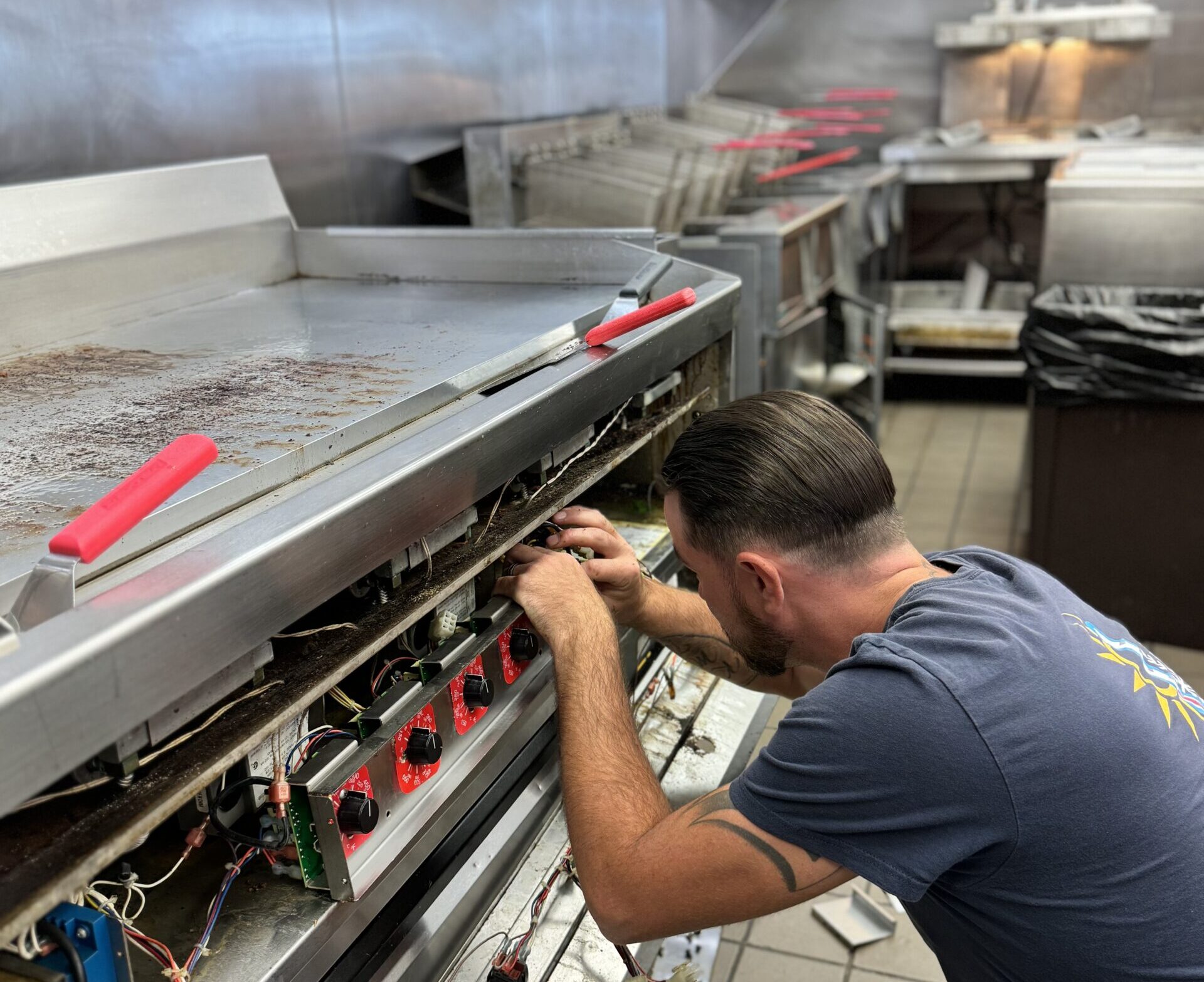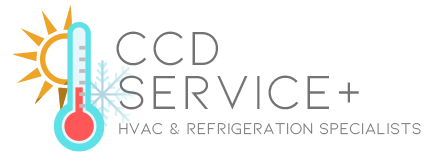
Gas Safety in Commercial Kitchens: If You Smell Something, Say Something!
In a busy commercial kitchen, safety is crucial. With constant activity, open flames, and powerful equipment, the risk of a gas leak is something you can’t afford to ignore. Even a small leak can quickly escalate into a dangerous situation, threatening your team, customers, and business. The number one gas safety rule is simple: If you smell something, say something — and get it checked immediately!
Read more to understand the signs of gas leaks, how to take action, and take further safety precautions for the future of your business.
Recognizing the Signs of a Gas Leak:
Gas suppliers add a chemical called mercaptan to give gas a distinctive “rotten egg” smell, making leaks easier to detect. But the smell isn’t the only sign — watch out for:
- Hissing sounds: A hissing noise near appliances or gas lines can indicate a leak.
- Bubbling in water or grease traps: Bubbles forming in standing water or greasy areas might mean gas is escaping.
- Physical symptoms: Headaches, dizziness, nausea, or fatigue can result from gas exposure.
If you notice any of these signs, act fast — don’t second-guess yourself.
What to Do If You Detect a Gas Leak:
The moment you suspect a gas leak, every second counts. Here’s what to do:
- Communicate & Evacuate: Alert your team and get everyone out of the kitchen immediately.
- Shut off the gas supply (if safe to do so): If you can access the main shut-off valve safely, turn it off.
- Ventilate the space: Open windows and doors, but don’t turn on fans or hoods — any spark could ignite the gas.
- Avoid flames and electrical devices: Don’t light matches, flip switches, or use any appliances. Even a small spark can trigger an explosion.
- Call a professional for help: Once outside, call your gas provider or emergency services. Do not go back inside until they’ve given the all-clear.
And most importantly — get your system inspected right away. Even after an issue is resolved, don’t resume operations until a licensed technician has checked your appliances, lines, and connections.
Why Immediate Inspection Is Non-Negotiable:
A gas leak isn’t something to “keep an eye on” or put off until the next scheduled maintenance. Delaying an inspection can turn a minor issue into a catastrophic event. Gas leaks can lead to fires, explosions, carbon monoxide poisoning, and severe structural damage — all of which can be avoided with quick action and proper oversight.
Preventing Gas Leaks in Your Kitchen:
Prevention is your first line of defense. Here’s how to stay ahead of potential hazards:
- Regular professional inspections: Schedule routine checks of your gas lines, appliances, and ventilation systems.
- Educating your staff: Make sure your team knows the signs of a gas leak, how to shut off the gas, and what steps to take in an emergency.
- Install gas detectors: These devices provide an extra layer of safety, alerting you to leaks before they become dangerous.
- Proper equipment maintenance: Clean and service your equipment regularly to prevent malfunctions that could cause leaks.
Safety Starts With Awareness:
A safe kitchen is a successful kitchen — and safety starts with awareness. Encourage your team to speak up the moment they suspect something is wrong. Remind them: If you smell something, say something — and get it checked immediately. It’s always better to be on the safe side than to risk a disaster.
By making gas safety a top priority, you protect not only your business but the people who make it run. Stay proactive, stay alert, and keep cooking with confidence!
Contact CCD Service Plus to schedule your routine gas inspections. Call 251-234-0485 or contact us through our website www.CCDServicePlus.com/contactus
